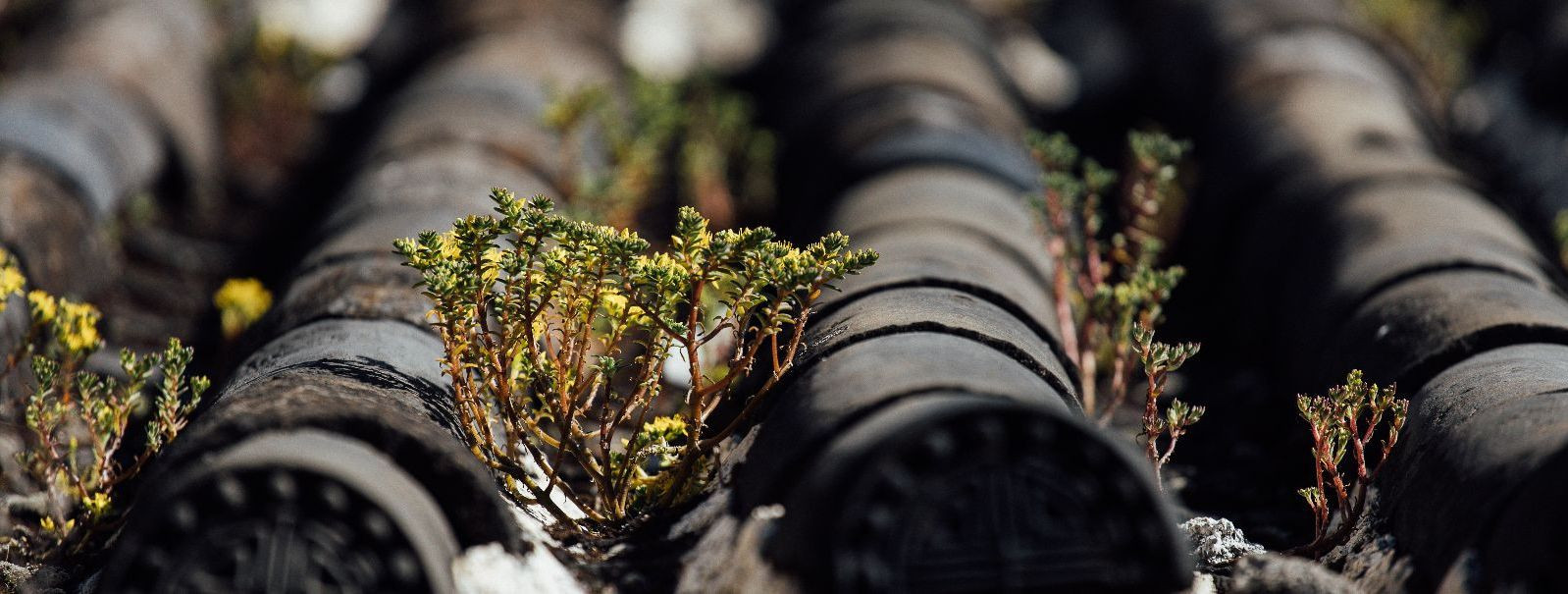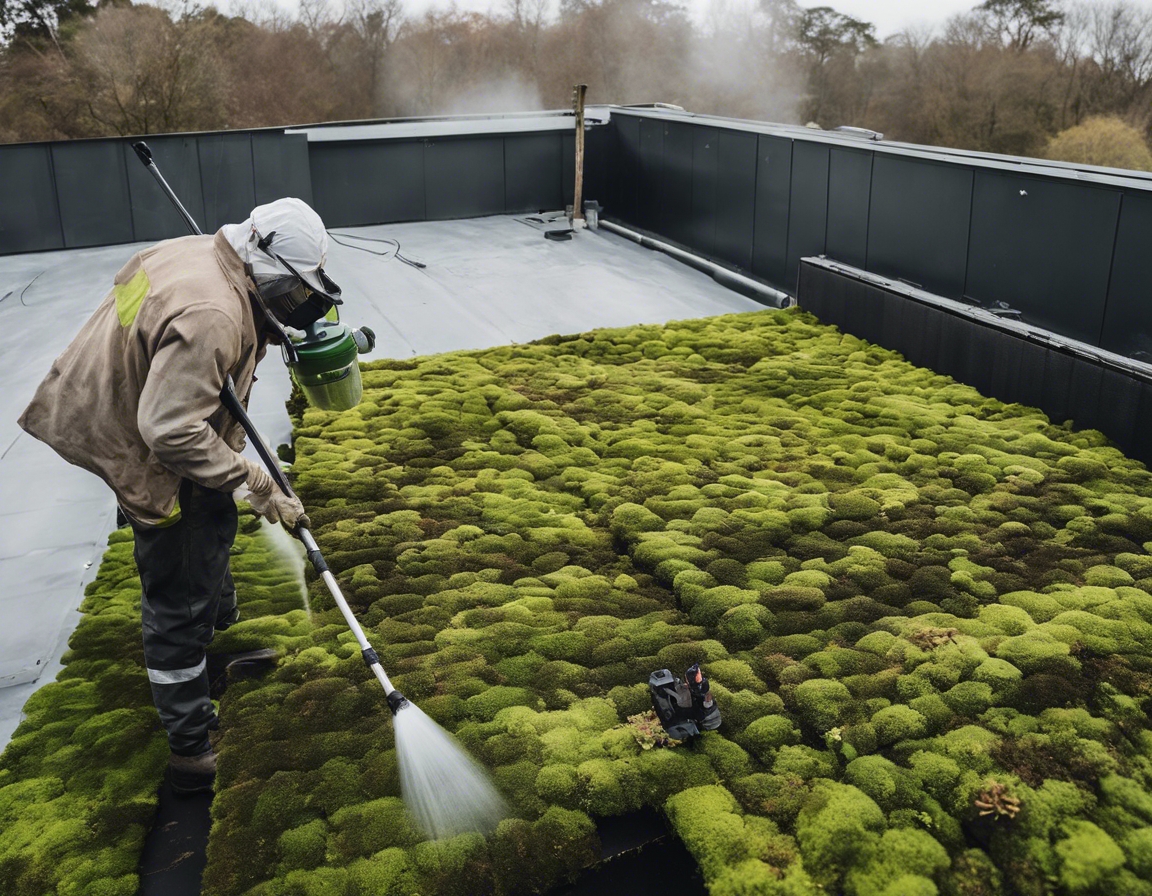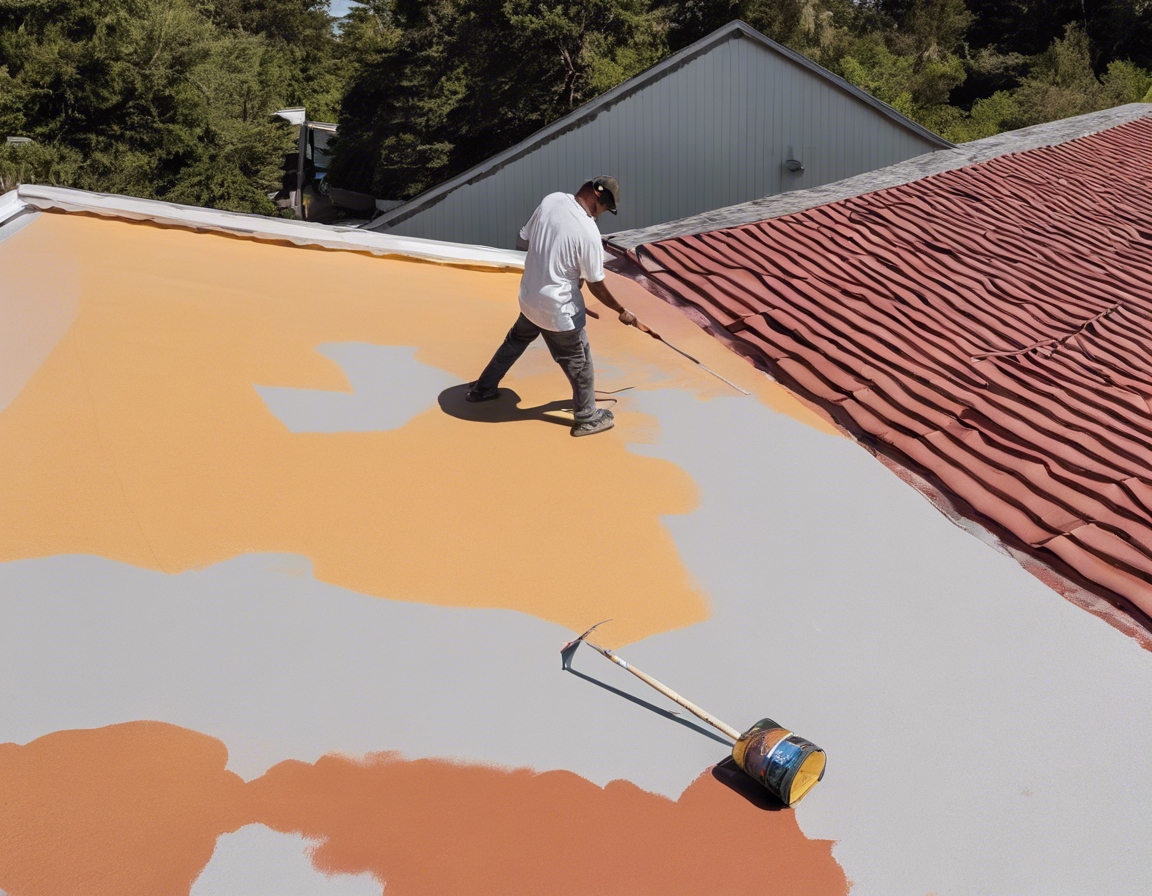Moss control: why it's essential for roof longevity
Moss is a small, green, non-vascular plant that typically grows in dense green clumps or mats, often in damp or shady locations. Unlike most plants, moss does not have flowers or seeds, and it reproduces through spores. Moss can grow on various surfaces, including roofs, where it can become a significant problem.
Moss can cause considerable damage to roofing materials. It retains moisture against the roof surface, which can lead to rot in wood, corrosion in metal roofing, and the breakdown of asphalt shingles. The roots of moss can also work their way into small cracks and crevices, widening them and leading to further damage.
Ignoring moss growth can lead to costly repairs. Over time, the persistent dampness can degrade the integrity of the roof, causing leaks, structural damage, and potentially even collapse. Additionally, moss can block gutters and downspouts, leading to water damage elsewhere in the structure.
Benefits of Moss Control
Regular moss control helps to extend the life of your roof by preventing the damage that moss can cause. By keeping the roof surface clean and free of moss, you can avoid the need for premature repairs or replacement.
By controlling moss, you also prevent water damage. Moss acts like a sponge, holding water on the roof, which can lead to leaks and water infiltration into your property.
A moss-free roof can contribute to better energy efficiency. Moss can insulate the roof and affect the home's temperature, leading to higher energy costs. Removing moss can help maintain the roof's ability to reflect sunlight, keeping your home cooler in the summer.
Moss can be unsightly and significantly detract from a property's appearance. By managing moss growth, you maintain your property's curb appeal and value, which is particularly important if you plan to sell in the future.
Methods of Moss Control
Regular inspections and maintenance are key to controlling moss. This includes cleaning off any debris, trimming overhanging branches that provide shade, and ensuring proper drainage.
There are various chemical treatments available that can effectively kill moss. These treatments typically need to be applied by professionals to ensure they are used safely and effectively.
Physical removal of moss involves brushing or scraping it off the roof. This method can be effective but must be done carefully to avoid damaging the roofing materials.
Preventative measures such as installing copper or zinc strips can inhibit moss growth. Additionally, choosing roofing materials that are resistant to moss can provide a long-term solution to the problem.
Choosing the Right Moss Control Service
Every roof is different, and a professional assessment can determine the best moss control strategy for your property. Customized solutions can address the specific needs of your roof.
Hiring experienced professionals is crucial for effective moss control. They have the knowledge, tools, and safety equipment to perform the job correctly.
When choosing a moss control service provider, look for experience, good reviews, proper licensing and insurance, and a comprehensive service offering that includes both treatment and preventative measures.






Comments (0)